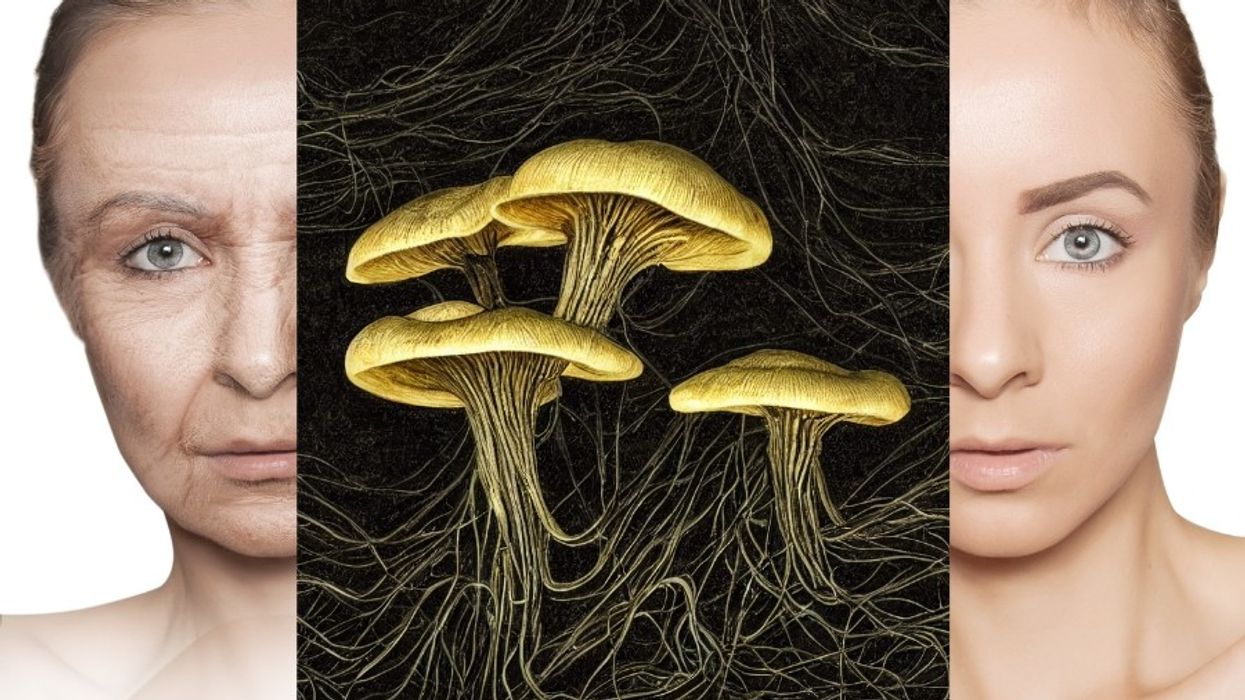For decades, psychedelic mushrooms have been part of the American counterculture. (They're currently illegal in the U.S.—listed as a Schedule I substance under the Controlled Substances Act.) But they're now way more mainstream than you might expect. In fact, as NPR reported, two high-profile studies from 2024 suggested that psilocybin, the active compound in psychedelic mushrooms, had become the preferred hallucinogen in the U.S. (The RAND Corporation estimated that three percent of Americans, roughly eight million adults, had used psilocybin within the previous year.) But fascinating new data suggests that psilocybin might be useful in unexpected contexts—it could even help slow down the aging process.
In July 2025, researchers at Houston’s Baylor College of Medicine published their evidence in Nature Partnering Journal (NPG) Aging, showing that psilocybin reduced hallmarks of aging in human cells and improved survival in aged mice (the equivalent of 60 in human years).
- YouTubewww.youtube.com
"Potent Effects on the Entire Body"
“There have been a number of clinical studies that have explored the therapeutic potential of psilocybin in psychiatric conditions such as depression and anxiety; however, few studies have evaluated its impacts outside the brain,” noted Dr. Louise Hecker, a senior author of the study and Baylor’s associate professor of Medicine -Cardiovascular Research, in a blog post for the university. “The overwhelming majority of what we know about psilocybin is how it impacts the brain. Our findings suggest that psilocybin has potent effects on the entire body, including [anti-aging] properties, which also may contribute to the plethora of observed beneficial clinical outcomes.” Hecker said this breakthrough could open an "exciting new chapter in psychedelic research."
There’s a lot of detailed science in the report, but at the core, here’s what the researchers found: Psilocybin extended the lifespan of human cells "up to 57% depending on dosages," and found other cellular markers "indicating improved DNA damage responses." They noted similar results when administering psilocybin to the aged mice, who showed "significantly improved survival compared to control mice." They also observed a "visible improvement in fur quality," indicating healthier aging. Dr. Kosuke Kato, a fellow lead author and Baylor’s Assistant Professor of Medicine-Pulmonary, celebrated the findings, noting the suggestion of "dramatic impacts" even when intervention occurs late in life. It’s exciting to consider the possibilities, especially once we have more data.
- YouTubewww.youtube.com
Psilocybin and Depression
Psilocybin has been the focus of significant medical research in recent years. A 2020 study by Johns Hopkins Medicine suggested that the psychedelic relieved symptoms of adults with major depression for up to a month. In a follow-up study published two years later, researchers found that the treatment, "given with supportive psychotherapy," was effective for up to a year in some patients. It should go without saying, however, that these results were achieved in a formal environment. As noted by Natalie Gukasyan, M.D., an assistant professor of psychiatry and behavioral sciences at John Hopkins, "the results we see are in a research setting and require quite a lot of preparation and structured support from trained clinicians and therapists."
All in all, plenty of experts think it’s time to reframe our thinking about psilocybin. "Let’s be adults about this. These are no longer 'shrooms,'" mycologist Paul Stamets told CNN in 2023. "These are no longer party drugs for young people."
- YouTubewww.youtube.com


















 Revenge can feel easier than forgiveness, which often brings sadness or anxiety.
Revenge can feel easier than forgiveness, which often brings sadness or anxiety. 
 In the past two years, two malaria vaccines have become available for babies starting at 5 months of age.
In the past two years, two malaria vaccines have become available for babies starting at 5 months of age. By exploiting vulnerabilities in the malaria parasite’s defense system, researchers hope to develop a treatment that blocks the parasite from entering cells.
By exploiting vulnerabilities in the malaria parasite’s defense system, researchers hope to develop a treatment that blocks the parasite from entering cells. Created with
Created with 

 Volunteers who drive homeless people to shelters talk with a person from Ukraine in Berlin on Jan. 7, 2026.
Volunteers who drive homeless people to shelters talk with a person from Ukraine in Berlin on Jan. 7, 2026.
 Tasks that stretch your brain just beyond its comfort zone, such as knitting and crocheting, can improve cognitive abilities over your lifespan – and doing them in a group setting brings an additional bonus for overall health.
Tasks that stretch your brain just beyond its comfort zone, such as knitting and crocheting, can improve cognitive abilities over your lifespan – and doing them in a group setting brings an additional bonus for overall health. Overdoing any task, whether it be weight training or sitting at the computer for too long, can overtax the muscles as well as the brain.
Overdoing any task, whether it be weight training or sitting at the computer for too long, can overtax the muscles as well as the brain.

 Amoxicillin is a commonly prescribed broad-spectrum antibiotic.
Amoxicillin is a commonly prescribed broad-spectrum antibiotic.  Chart: The Conversation, CC-BY-ND
Chart: The Conversation, CC-BY-ND
 Counterintuitively, social media can make you feel more bored and lonely.
Counterintuitively, social media can make you feel more bored and lonely. Talking about what you’ve read can add a social dimension to what can be a solitary activity.
Talking about what you’ve read can add a social dimension to what can be a solitary activity.